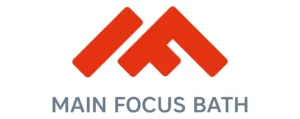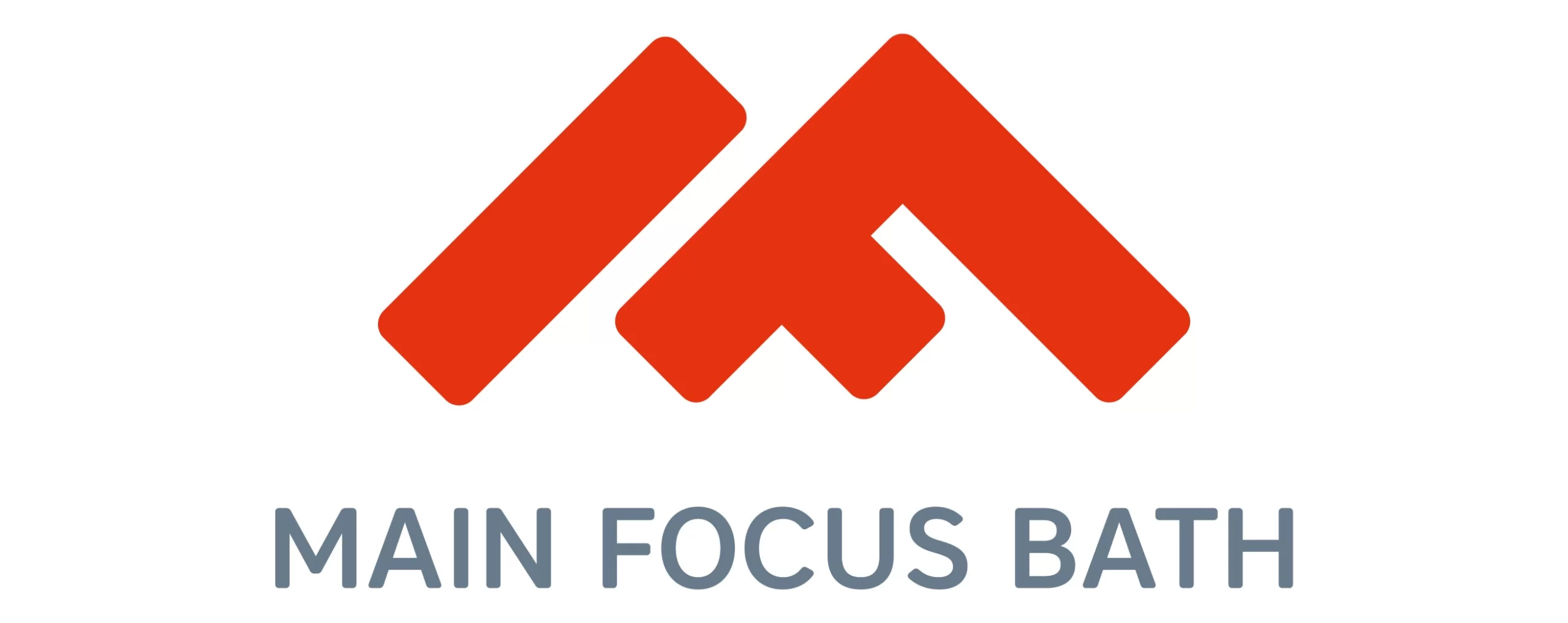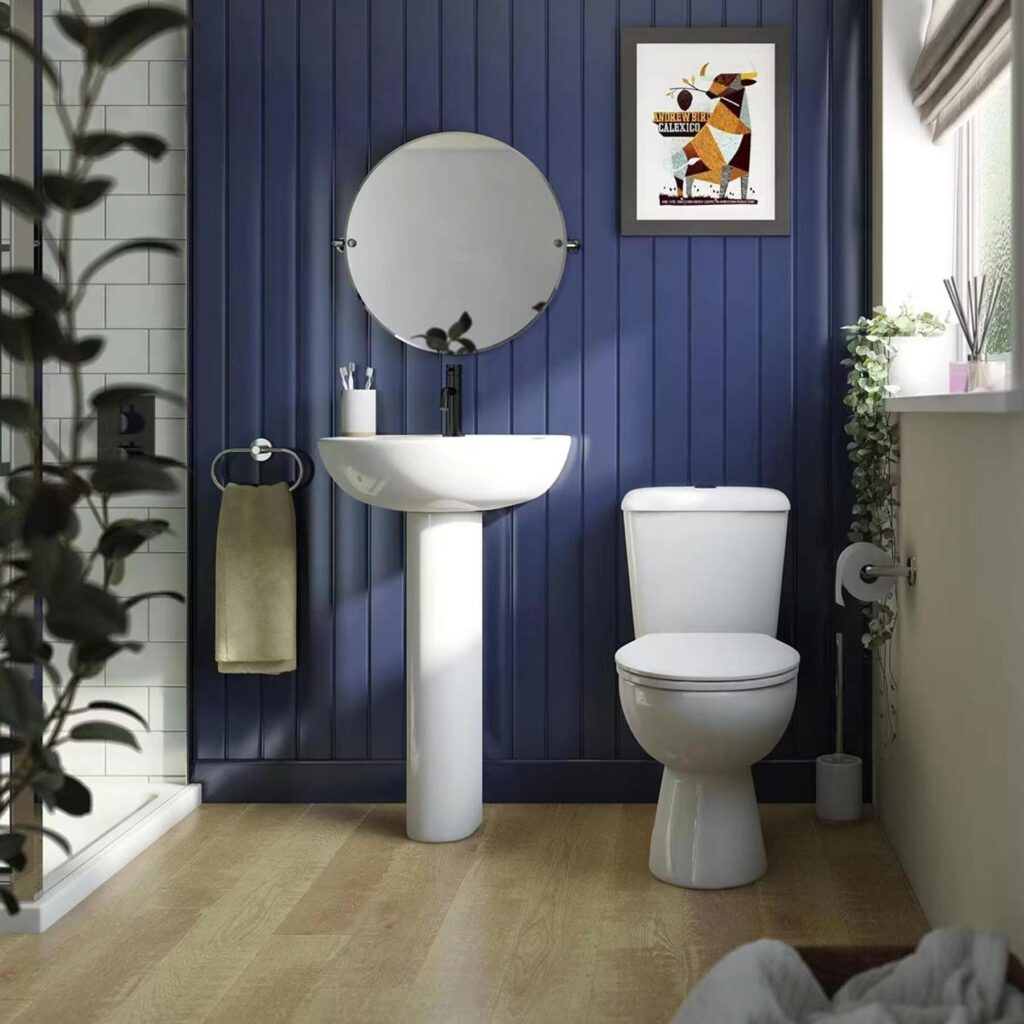Giới thiệu
For wholesalers and retailers in the sanitary ware industry, navigating the complexities of wholesale wall-hung toilet pricing can make or break your bottom line. With minimum order quantities (MOQs) ranging from 50 to 200 units and per-unit costs fluctuating between $50 and $150, the stakes are high for inventory management and profit margins.
But here’s the kicker: beyond the sticker price, hidden costs like shipping, customs duties, and storage fees can silently eat away at your profits, potentially adding 15-25% to your total investment. Understanding these nuances is crucial for staying competitive in a market where informed pricing strategies can be the difference between thriving and merely surviving.
As a professional manufacturer of ceramic sanitary ware, we at MFBath have seen firsthand how savvy wholesalers leverage bulk pricing, quality certifications, and efficient supply chains to maximize their returns. This comprehensive guide breaks down the essentials of wholesale wall-hung toilet pricing, from decoding MOQs to unveiling profit-boosting strategies that can transform this product line into a cornerstone of your inventory.
Mastering Minimum Order Quantities (MOQs) for Wall-Hung Toilets
As a wholesaler in the Kho vệ sinh industry, understanding and mastering Minimum Order Quantities (MOQs) is crucial for optimizing your business operations. This is especially true when it comes to wholesale wall-hung toilet pricing. Let’s dive into the world of MOQs and explore how they can impact your bottom line.
What Are MOQs and Why They Matter in Wholesale
MOQs refer to the minimum number of units a supplier requires you to purchase in a single order. For wall-hung toilets, these quantities can significantly affect your pricing structure and inventory management. By meeting or exceeding MOQs, you can often secure better wholesale wall-hung toilet pricing, leading to improved profit margins.
“Understanding MOQs for wall-hung toilets is essential for wholesalers to balance cost savings with inventory risks and optimize their business strategy.”
Typical MOQ Ranges for Wall-Hung Toilets
In the sanitary ware industry, MOQs for wall-hung toilets typically range from 50 to 200 units. This range allows suppliers to maintain efficient production runs while offering wholesalers flexibility in their purchasing decisions. Let’s break down the implications of different MOQ levels:
| MOQ Range | Price Discount | Storage Requirements | Cash Flow Impact | Market Suitability |
|---|---|---|---|---|
| 50-100 units | 5-10% | Low to Medium | Vừa phải | Small to Medium Retailers |
| 101-150 units | 10-15% | Trung bình | Significant | Medium to Large Retailers |
| 151-200 units | 15-20% | Cao | Substantial | Large Retailers, Contractors |
| 200+ units | 20%+ | Rất cao | Major | Major Distributors, Chains |
| Custom MOQs | Negotiable | Varies | Linh hoạt | All Business Sizes |
Balancing Bulk Savings with Inventory Risks
While larger MOQs often translate to better pricing, they also come with increased inventory risks. It’s crucial to find the “sweet spot” that balances cost savings with your storage capabilities and market demand. Consider factors such as:
- Your average monthly sales volume
- Available storage space
- Cash flow constraints
- Seasonal demand fluctuations
By carefully analyzing these factors, you can determine the optimal MOQ for your business, ensuring you benefit from bulk pricing without overextending your resources.
How Suppliers Like MFBath Optimize MOQ Flexibility
At MFBath, we understand that one size doesn’t fit all when it comes to MOQs. That’s why we offer tailored solutions to meet the diverse needs of our wholesaler partners. Our approach includes:
- Flexible MOQ options based on your business size and needs
- Mixed-product orders to help you meet MOQs while diversifying inventory
- Seasonal promotions with adjusted MOQs to align with market trends
- Consignment options for new product lines or market testing
This flexibility allows you to optimize your inventory management while still benefiting from competitive wholesale wall-hung toilet pricing. It’s all about finding the right balance for your unique business model.
Remember, the key to mastering MOQs lies in understanding your market, analyzing your sales data, and partnering with suppliers who can offer the flexibility you need. By doing so, you’ll be well-positioned to maximize your profits in the competitive world of wall-hung toilet wholesaling.
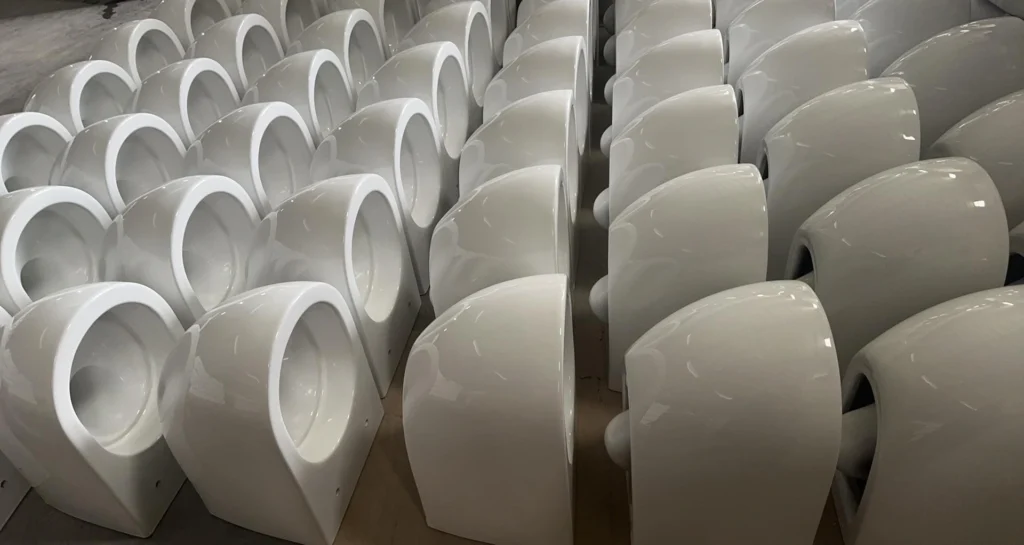
Decoding Cost Drivers in Wholesale Wall-Hung Toilet Pricing
As a wholesaler in the sanitary ware industry, understanding the factors that influence wholesale wall-hung toilet pricing is crucial for making informed procurement decisions and maximizing your profit margins. Let’s break down the key cost drivers that shape the pricing structure of these popular bathroom fixtures.
Material Quality: Ceramic Grades and Durability
The quality of ceramic used in wall-hung toilets significantly impacts their cost and longevity. Higher-grade ceramics offer superior durability, stain resistance, and ease of cleaning, but come at a premium. Here’s a breakdown of ceramic grades and their impact on pricing:
| Ceramic Grade | Độ bền (năm) | Stain Resistance | Price Impact | Ideal Usage |
|---|---|---|---|---|
| Standard | 10-15 | Tốt | Base Price | Residential |
| Phần thưởng | 15-20 | Very Good | +15-25% | High-End Residential |
| Commercial Grade | 20-25 | Xuất sắc | +30-40% | Hotels, Offices |
| Industrial Grade | 25+ | Superior | +50-60% | Airports, Stadiums |
| Specialty Coatings | Varies | Enhanced | +10-20% extra | Custom Projects |
“Understanding the relationship between ceramic quality and pricing empowers wholesalers to offer the right product for each market segment, balancing cost and performance.”
Manufacturing Complexity: Design and Features Impact
The design intricacy and additional features of wall-hung toilets can significantly affect their cost. Simple, streamlined models are generally more affordable, while toilets with advanced features or unique designs command higher prices. Consider these factors:
- Flush technology (e.g., dual-flush systems, water-saving mechanisms)
- Shape and size (compact vs. elongated bowls)
- Surface treatments (e.g., easy-clean coatings)
- Integrated bidet functions
- Smart features (automatic lids, heated seats)
Each additional feature can increase the manufacturing cost and, consequently, the wholesale price. It’s essential to assess which features are in demand in your target market to strike the right balance between functionality and affordability.
Shipping Logistics: Domestic vs. International Costs
Shipping costs play a significant role in the overall pricing of wall-hung toilets, especially when dealing with international suppliers. Here’s a comparison of domestic and international shipping considerations:
- Domestic shipping: Generally 5-10% of product cost
- International shipping: Can range from 15-30% of product cost
- Container load efficiency: Full container loads (FCL) offer better rates than less than container loads (LCL)
- Port fees and inland transportation costs
- Insurance and handling charges
To optimize wholesale wall-hung toilet pricing, consider consolidating orders to take advantage of FCL rates and explore partnerships with local warehousing solutions to manage inventory more efficiently.
Hidden Costs: 15-25% Add-Ons
When calculating the true cost of wall-mounted toilets, don’t overlook these often-hidden expenses:
- Customs duties: Typically 3-7% for sanitary ware
- Storage costs: 2-5% of product value per month
- Import taxes: Vary by country, averaging 5-10%
- Currency exchange fluctuations: Can impact pricing by 1-3%
- Quality control and inspection fees: 1-2% of order value
These additional costs can add up to 15-25% on top of the base price, significantly impacting your final pricing strategy. By factoring in these expenses, you can set more accurate and competitive prices for your customers.
At MFBath, we understand the complexities of cost drivers in the sanitary ware industry. Our CE-certified wall-hung toilets offer a balance of quality and affordability, helping wholesalers like you maximize profit margins while meeting market demands. By considering these factors and partnering with reliable manufacturers, you can develop a “killer” pricing strategy that keeps you competitive in the dynamic world of bathroom fixtures.
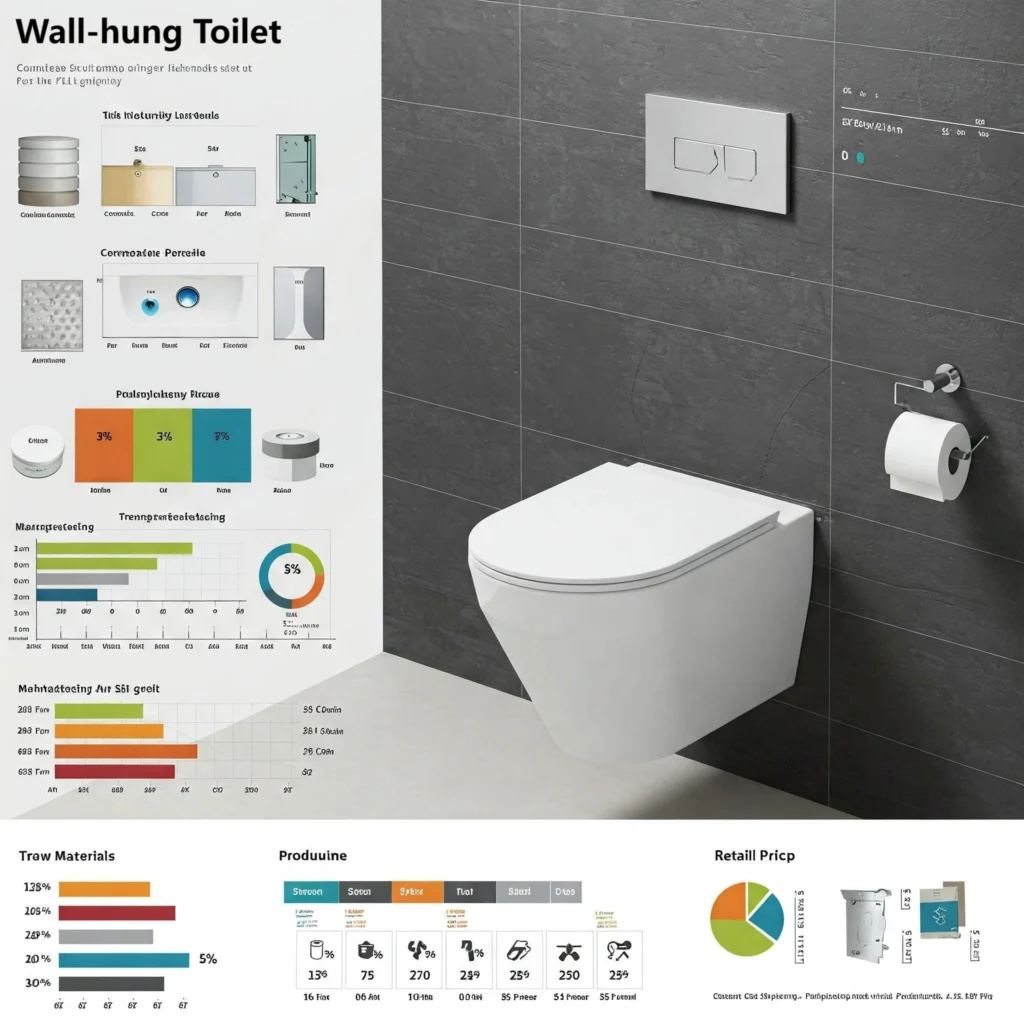
Comparing Wall-Hung Toilet Brands for Wholesale Success
As a wholesaler in the sanitary ware industry, selecting the right wall-hung toilet suppliers can make or break your business. Let’s dive into a comparative analysis of leading brands, focusing on quality, cost-effectiveness, and overall value to help you make informed decisions for your inventory.
MFBath: Affordable, Durable, and Certified Options
At MFBath, we pride ourselves on offering a range of wall-hung toilets that combine affordability with durability. Our products are CE-certified, ensuring they meet strict European quality standards. This certification not only guarantees product quality but also enhances customer trust and resale value.
“CE-certified wall-hung toilets from reliable suppliers like MFBath offer wholesalers a competitive edge, balancing quality and affordability in the sanitary ware market.”
Traditional Models vs. Wall-Hung Toilets: Cost and Value
When comparing traditional floor-mounted toilets to wall-hung models, it’s essential to consider both upfront costs and long-term value. Here’s a breakdown of key factors:
| Nhân tố | Traditional Toilets | Wall-Hung Toilets | Impact on Wholesale Pricing |
|---|---|---|---|
| Chi phí ban đầu | Lower | Higher | Wall-hung 20-30% more expensive |
| Installation Complexity | Simple | More Complex | Installation costs 15-25% higher for wall-hung |
| Space Efficiency | Standard | Superior | Can increase property value by 3-5% |
| Cleaning Ease | Standard | Easier | Reduces maintenance costs by 10-15% |
| Hiệu quả nước | Variable | Generally Better | Can reduce water bills by 20-30% |
While wall-hung toilets may have a higher upfront cost, their long-term benefits often justify the investment, making them an attractive option for wholesale wall-hung toilet pricing strategies.
Emerging Brands in the Wholesale Market
The sanitary ware market is constantly evolving, with new brands entering the scene. Some emerging players worth noting include:
- EcoFlush: Known for water-saving technology
- ModernBath: Specializes in sleek, contemporary designs
- DuraFix: Focuses on easy-install wall-hung systems
While these brands may offer innovative features, it’s crucial to assess their track record, certifications, and after-sales support before making bulk purchases.
Supplier Reliability: Lead Times and Consistency
When selecting wall-hung toilet suppliers, consider factors beyond just pricing:
- Lead times: Consistent delivery schedules are crucial for inventory management
- Quality control: Look for suppliers with rigorous QC processes
- Customer support: Responsive after-sales service can save you headaches down the line
- Customization options: Ability to tailor products to market demands
At MFBath, we understand the importance of these factors in wholesale wall-hung toilet pricing and supply chain management. Our commitment to reliability and quality has made us a “go-to” choice for many successful wholesalers.
Remember, the best wall-hung toilet brands for wholesale purchase are those that offer a balance of quality, affordability, and reliable service. By carefully comparing options and considering long-term value, you can make informed decisions that boost your bottom line and customer satisfaction.
Strategies to Maximize Profit Margins with Wall-Hung Toilets
As a wholesaler in the sanitary ware industry, maximizing profit margins while remaining competitive is crucial for long-term success. Let’s explore some effective strategies to boost your profitability in the wall-hung toilet market.
Setting Competitive Resale Prices (30-50% Markup)
Finding the right balance in wholesale wall-hung toilet pricing is key to maximizing profits. A common approach is to aim for a 30-50% markup on your cost price. Here’s a breakdown of how this strategy can work:
| Cost Price | Markup Percentage | Resale Price | Profit Margin | Market Position |
|---|---|---|---|---|
| $100 | 30% | $130 | 23% | Budget-Friendly |
| $100 | 40% | $140 | 29% | Tầm trung |
| $100 | 50% | $150 | 33% | Phần thưởng |
| $150 | 40% | $210 | 29% | High-End |
| $200 | 50% | $300 | 33% | Luxury |
“Striking the right balance in wholesale wall-hung toilet pricing is crucial. A 30-50% markup allows for competitive pricing while ensuring healthy profit margins.”
Leveraging Quality to Reduce Returns and Build Trust
High-quality products like those from MFBath can significantly impact your bottom line by reducing returns and building customer trust. Consider these benefits:
- Lower return rates: Quality products can reduce returns by up to 50%
- Increased customer loyalty: Satisfied customers are 60% more likely to make repeat purchases
- Positive word-of-mouth: Happy customers typically tell 9 people about their experience
- Reduced customer service costs: Fewer issues mean less time spent on problem-solving
By focusing on quality, you can justify slightly higher prices while building a reputation that supports long-term profitability.
Niche Market Opportunities: Designer vs. Budget Models
Diversifying your inventory to cater to specific market segments can boost overall profitability. Consider this comparison:
- Designer Models:
- Higher profit margins (40-60%)
- Appeal to luxury home builders and high-end renovations
- Lower sales volume but higher per-unit profit
- Budget Models:
- Lower profit margins (20-30%)
- higher sales volume
- Appeal to cost-conscious consumers and large-scale projects
By offering a mix of both, you can capture a wider market share and balance your profit structure.
Bundling Products for Higher Margins
Creating attractive product bundles can increase your average order value and overall profitability. Consider these bundling strategies:
- Toilet + Bidet Combo: Increase margins by 15-20%
- Complete Bathroom Set: Boost overall sale value by 30-40%
- Accessories Package: Add 10-15% to the base product price
- Installation Kit Bundle: Improve margins by 5-10% while providing added value
Bundles not only increase your profit per sale but also simplify the buying process for your customers, leading to higher satisfaction and repeat business.
At MFBath, we understand the importance of supporting our wholesalers in maximizing their profitability. Our low-maintenance designs and CE-certified products are crafted to minimize after-sale costs, appealing to wholesalers focused on sustainable growth. By implementing these strategies and partnering with reliable manufacturers, you can “crush it” in the competitive world of sanitary ware wholesaling.
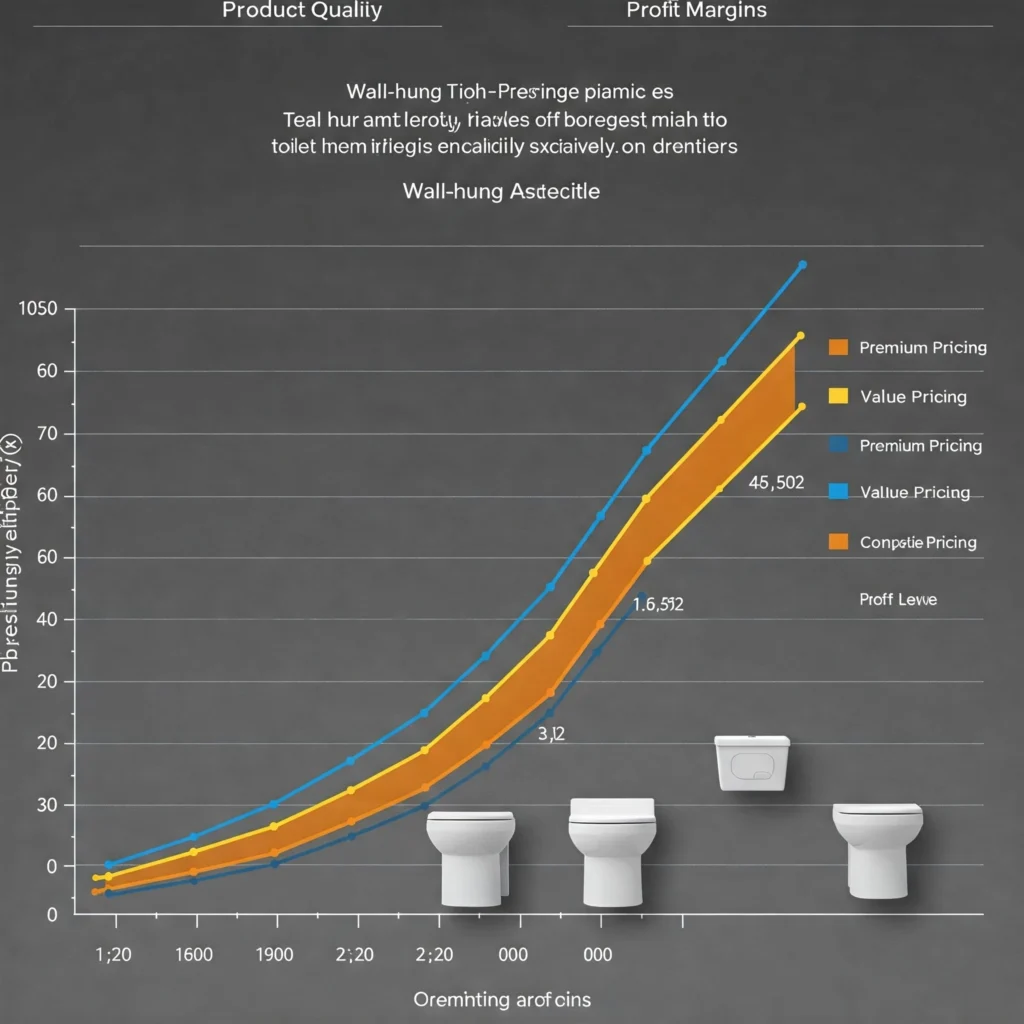
Streamlining Supply Chains for Efficient Bulk Delivery
In the competitive world of wholesale sanitary ware, efficient supply chain management can make or break your business. Let’s explore how streamlining your supply chain can enhance profitability by reducing lead times and ensuring consistent stock availability for wall-hung toilets.
Partnering with Reliable Suppliers Like MFBath
Choosing the right supplier is crucial for maintaining a smooth supply chain. At MFBath, we pride ourselves on our efficient bulk processing capabilities, which significantly cut delivery times and help wholesalers meet retailer demand without overstocking. Here’s how partnering with a reliable supplier can benefit your business:
- Consistent quality: CE-certified products ensure fewer returns and customer complaints
- Flexible MOQs: Adapt to market demands without tying up excessive capital
- Technical support: Quick resolution of issues to maintain customer satisfaction
- Innovation: Stay ahead with the latest designs and technologies
“Partnering with reliable suppliers like MFBath can significantly reduce lead times and improve stock consistency, directly impacting wholesale wall-hung toilet pricing and profitability.”
Impact of Shipping and Logistics on Total Costs
Understanding the impact of shipping and logistics on your total costs is crucial for accurate wholesale wall-hung toilet pricing. Let’s break down the key factors:
| Logistics Factor | Impact on Cost | Mitigation Strategy | Potential Savings | Effect on Lead Time |
|---|---|---|---|---|
| Shipping Method | 10-20% of product cost | Bulk shipping, optimized routes | 3-5% | Reduced by 1-2 weeks |
| Customs Clearance | 5-10% in fees and delays | Pre-clearance, proper documentation | 2-3% | Reduced by 3-5 days |
| Warehousing | 3-7% of product value monthly | Just-in-time inventory, local distribution | 1-2% | Improved by 1-3 days |
| Last-Mile Delivery | 2-5% of total cost | Optimized routes, bulk deliveries | 1% | Reduced by 1-2 days |
| Insurance | 1-3% of shipment value | Bulk policies, trusted carriers | 0.5-1% | No direct impact |
Managing Bulk Order Timelines Effectively
Efficient timeline management is key to maintaining a healthy cash flow and meeting customer demands. Consider these strategies:
- Forecast demand: Use historical data and market trends to predict future needs
- Staggered ordering: Break large orders into manageable chunks to spread costs
- Buffer stock: Maintain a small surplus to cover unexpected demand spikes
- Supplier communication: Regular updates can help anticipate and prevent delays
By implementing these strategies, you can optimize your inventory levels and improve your ability to calculate pricing for wall-hung toilets in wholesale accurately.
Mitigating Risks: Customs Delays and Storage Solutions
Unforeseen delays and storage issues can significantly impact your bottom line. Here are some tips to mitigate these risks:
- Customs expertise: Work with experienced customs brokers to smooth the import process
- Diversify suppliers: Reduce dependency on a single source to minimize disruption risks
- Local warehousing: Consider partnering with local storage facilities to reduce transit times
- Digital tracking: Implement real-time tracking systems to monitor shipments and anticipate issues
At MFBath, we understand these challenges and work closely with our wholesalers to “iron out the kinks” in the supply chain. Our efficient processes and global logistics network help ensure that your wholesale sanitary ware arrives on time and in perfect condition.
Remember, a well-managed supply chain not only reduces costs but also improves your ability to respond to market demands quickly. By partnering with reliable wall-hung toilet suppliers and implementing these strategies, you can significantly enhance your competitive edge in the wholesale market.
Phần kết luận
After years in the sanitary ware industry, I’ve seen firsthand how crucial smart pricing strategies are for wholesalers. It’s not just about slapping on a 30-50% markup and calling it a day. The real “secret sauce” lies in understanding the nuances of your market, from MOQs to hidden costs.
At MFBath, we’re committed to helping our partners navigate these complexities. Our CE-certified wall-hung toilets offer the quality and flexibility you need to stay competitive. Remember, success in this business isn’t just about the lowest price—it’s about delivering value, streamlining your supply chain, and building trust with your customers.
As you refine your pricing strategy, keep an eye on emerging trends and niche opportunities. The market is always evolving, and those who adapt quickest will thrive. Here’s to your success in the dynamic world of wholesale wall-hung toilets!
Câu hỏi thường gặp
-
Q1: What is the average price range for wholesale wall-hung toilets?
A1: The average price range for wholesale wall-hung toilets typically falls between $100 to $500, depending on the brand, quality, and specifications.
-
Q2: Are there minimum order quantities for wholesale wall-hung toilets?
A2: Yes, many suppliers require a minimum order quantity (MOQ) to qualify for wholesale pricing, which can range from a few units to dozens, depending on the manufacturer’s policies.
-
Q3: How can I calculate the pricing for bulk wall-hung toilets?
A3: To calculate pricing for bulk wall-hung toilets, consider the unit cost, any applicable discounts for large orders, shipping costs, and local taxes or duties.
-
Q4: What factors influence the pricing of wall-hung toilets?
A4: Factors influencing the pricing of wall-hung toilets include material quality, design features, brand reputation, production costs, and market demand.
-
Q5: Where can I find wholesale wall-mounted toilet suppliers?
A5: Wholesale wall-mounted toilet suppliers can be found through online marketplaces, trade shows, and industry directories, with many offering a range of products at competitive prices.
-
Q6: What are the benefits of buying wall-hung toilets in bulk?
A6: Buying wall-hung toilets in bulk can provide cost savings, ensure availability for large projects, and simplify logistics by reducing the number of orders.
-
Q7: Are wall-hung toilets more expensive than traditional models?
A7: Wall-hung toilets can be more expensive than traditional models due to their design, installation requirements, and the cost of the concealed tank setup.
-
Q8: What are the maintenance costs associated with wall-hung toilets?
A8: Maintenance costs for wall-hung toilets can vary, but they generally involve regular cleaning and occasional repairs, which may be simplified due to their design.
Liên kết bên ngoài
- Wall Hung Toilets Market Analysis and Pricing Strategy
- The Impact of COVID-19 on the Sanitary Ware Industry
- Wholesale Pricing Strategies for Bathroom Fixtures
- Toilet Pricing Trends: 2022 Report
- Economic Analysis of Market Dynamics for Bathroom Sanitary Ware
- 2022 Wall-Hung Toilet Market Research Report
- The Influence of Consumer Preferences on Bathroom Fixture Pricing
- Wholesale vs Retail Pricing: Key Differences
